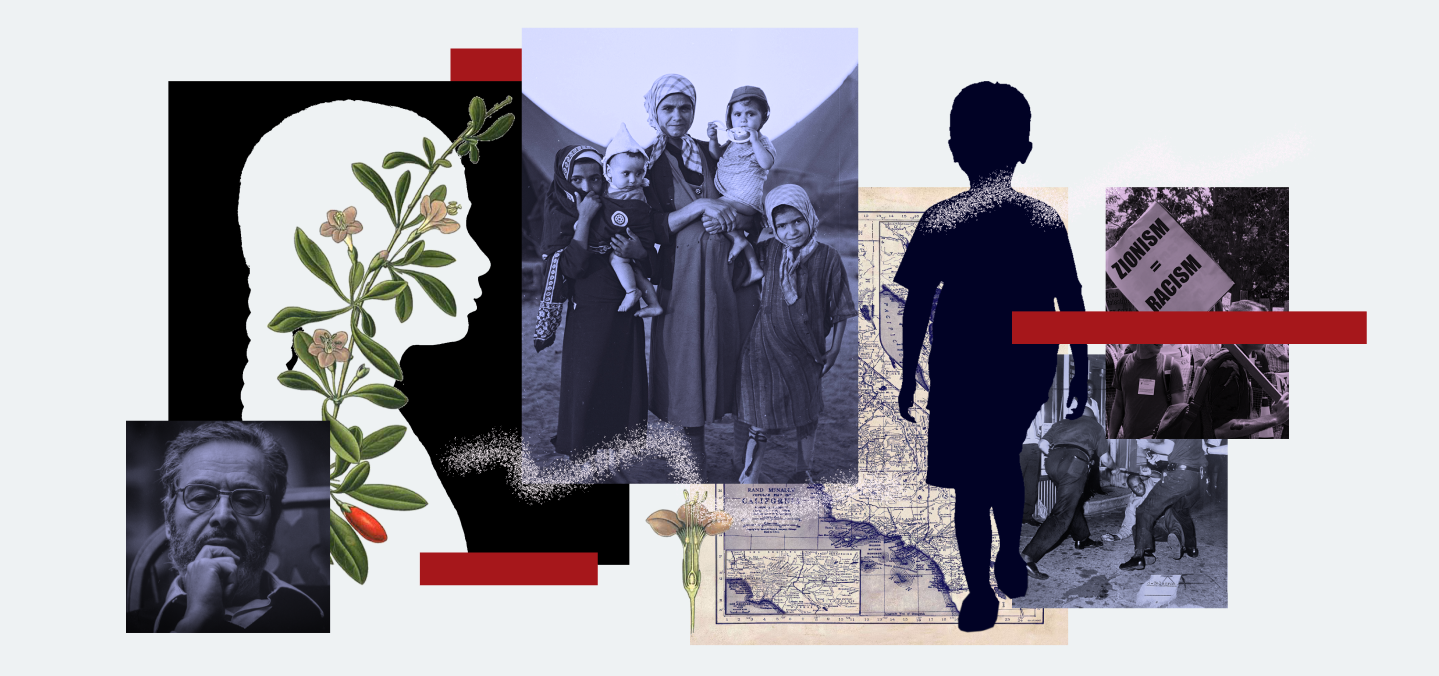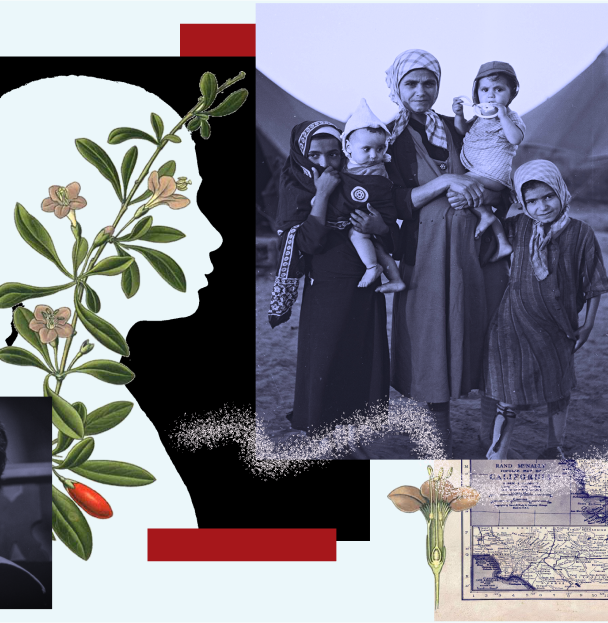At JIMENA: Jews Indigenous to the Middle East and North Africa, our mission is to educate the public on the histories, heritage, and rights of the nearly one million Jewish refugees from the Middle East and North Africa, and to ensure that their experiences are recognized in both Jewish and broader educational spaces.
Fighting cultural erasure and historical revisionism has always been core to what our organization does, and we are prepared to fight the removal of our stories from places where they should be naturally adopted. That’s why, in 2019, when California released the first draft of its Ethnic Studies Model Curriculum, which excluded Jewish lesson plans and cast Israel as a settler-colonial oppressor, we immediately intervened. We understood that if we didn’t challenge these distortions, they could very well become institutionalized.
As I began JIMENA’s arduous push for the inclusion of Mizrahi and Sephardi perspectives and voices in the debates and the content itself, I returned to one of my most trusted 20th-century Jewish philosophers: Tunisian-born Albert Memmi. Memmi’s 1957 landmark book, The Colonizer and the Colonized, established him as a global authority on identity, in-betweenness, and colonial power. One line struck me deeply: “The most serious blow suffered by the colonized is being removed from history and from the community. He is excluded from all activity, all liberty, all dignity.”
Memmi was a Zionist and a grandfather of theories on decolonization who described the condition of North African Jews as one of double alienation — rejected by local Arab-Muslims as traitors and never fully accepted by European colonizers as equals. He wrote powerfully about the plight of the one million Jews who fled or were expelled from Arab and Muslim lands, emphasizing how their experiences were forgotten by history. Approximately 650,000 of these Jews fled to Israel, and today their descendants comprise more than half of Israel’s Jewish population. The remainder went to the United States, France, Canada, and other countries.
The alienation that Memmi described fortified my resolve to demand truthful and dignified Jewish representation in K–12 social sciences and ethnic studies in particular.
The original authors of California’s Ethnic Studies Model Curriculum, an 18-member advisory committee of university scholars who were appointed by California’s State Board of Education, are at the forefront of this erasure. It was not an accident: the exclusion reflects a growing ideological trend to portray Jews and Zionists as settler-colonialists — a new version of colonialists introduced to academia in the 1990s — while glorifying narratives aligned with political movements that reject Jewish indigeneity, decolonization, and self-determination.
Rather than turn to the scholarship of Memmi, the radical movement that came to be known as Liberated Ethnic Studies turned, at least in part, to Hamas.
Yes, Hamas. In 1993, a meeting in Philadelphia attended by senior Hamas operatives and sympathizers, revealed a strategy to establish U.S.-based organizations aimed at shaping public opinion, including among students. Less than a year later, CAIR: Council on American-Islamic Relations was formed. Since then, CAIR and affiliates like AROC: Arab Resource and Organizing Center, and MECA: Middle East Children’s Alliance, have worked to embed anti-Israel, anti-Zionist ideology into education.
JIMENA could not sit idly by and watch as Liberated Ethnic Studies embraced Hamas-aligned narratives and a revisionist version of history that excluded and misrepresented the Jewish experience. We could not watch them isolate our community, effectively doing what Memmi, the Jewish and Zionist grandfather of decolonial studies, warned against.
And so, after one year of advocating for the inclusion of JIMENA’s educational content in the model curriculum, in 2021, the California State Board of Education adopted our lesson plan, “Antisemitism and the Middle Eastern Jewish Experience,” into its Ethnic Studies Model Curriculum.
Our lesson plan blazed a new trail through the discipline. To the dismay of the original drafters, our contribution became a necessary disruptor, a corrective that directly challenged a coalition of Liberated Ethnic Studies educator-activists whose approach to Middle Eastern indigenous communities is uninformed at best and, at worst, openly hostile.
Ethnic studies in its “liberated” form has jumped from California and spread to communities around the country. While these educator-activists continue to move with precision, much of the Jewish community has remained reactive or unaware of the toxic nature of this so-called educational movement. That has to change.
At JIMENA, we believe in a bold, strategic, multi-pronged, and proactive approach that includes curriculum and content creation and disruption, ongoing research, coalition building, Jewish and Middle Eastern communal partnerships, public education and advocacy, and diplomacy. We can’t stop Liberated Ethnic Studies from spreading, but we can continue to disrupt it by incorporating our own educational materials and helping its leaders and practitioners to unlearn the antisemitic propaganda they’ve absorbed under the guise of “Palestinian solidarity.”
Walking away from the field of ethnic studies would be a mistake. Sephardi, Mizrahi, Israeli, and Middle Eastern Jewish participation ensures that discussions around Israel, antisemitism, Jewish identity, and the Middle East are shaped by those with lived experience. Otherwise, antisemitic narratives risk becoming institutionalized. If we don’t help shape curricula, others will define our history and identity without us. Engagement demands honest representation, combats bigoted distortion, and builds credibility. Disengagement invites antisemitic revisionism, marginalization, and erasure.
JIMENA will keep challenging Liberated Ethnic Studies orthodoxy because we challenge the binaries of oppressor and oppressed. Our very existence as Middle Eastern Jews complicates their adopted narratives. We descend from an indigenous Middle Eastern community that for centuries survived Arab and Islamist antisemitism, colonial partition, and ethnic cleansing. We are proof that decolonial, intersectional frameworks must account for complexity.
As the field of ethnic studies evolves, we hope to counter the myth of Israel and the Levant as a homogeneous region and to introduce students to the full complexity of Southwest Asia, where our Jewish ancestors built tribes, kingdoms, legal codes, and land-based rituals alongside other indigenous groups. Binaries simply don’t hold there. Our diverse people deserves accurate representation and solidarity.
Forgotten radical voices like Albert Memmi’s continue to guide JIMENA’s approach to ethnic studies, along with the wisdom of other indigenous cultures. We invite you, always, to join us in reshaping public understanding of who Jews are and where we come from.



